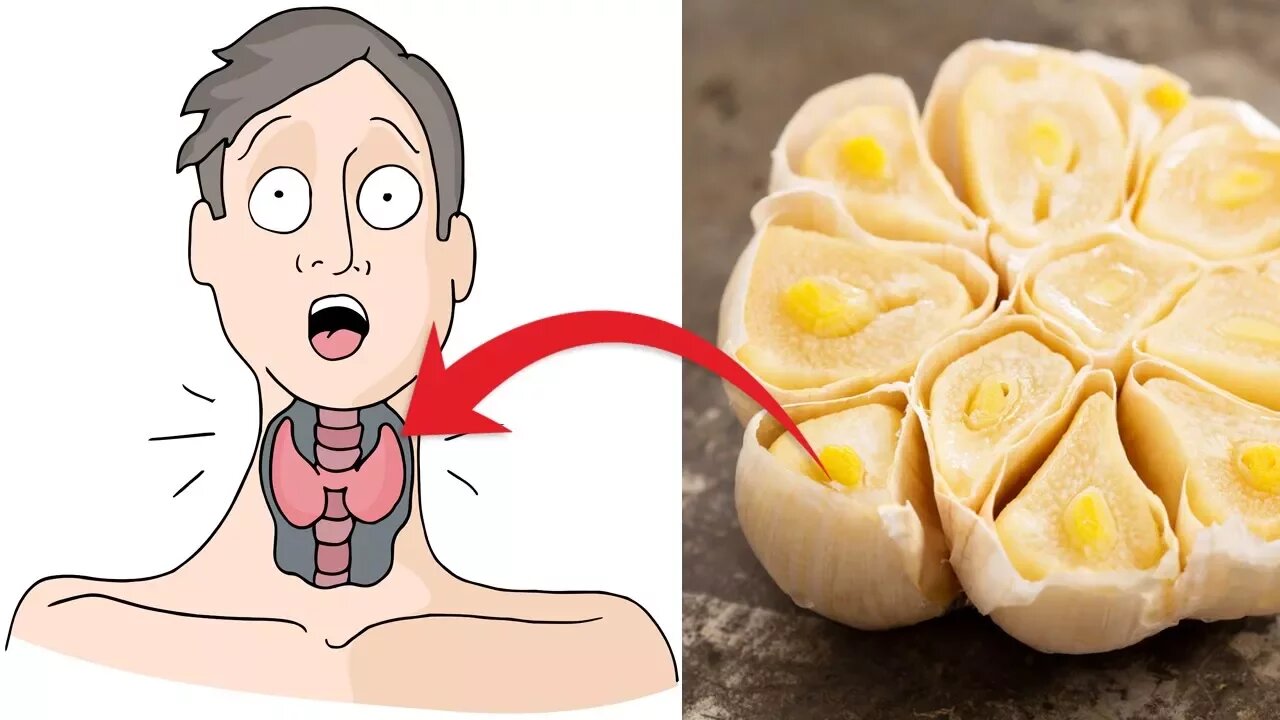Premium Only Content

The Best Diet For An Underactive Thyroid
Sometimes, people who have a hard time losing weight may also have problems with hypothyroidism, also knowns as an under-active thyroid gland.
This condition makes our body’s metabolism slow down and retain more liquids than normal.
It’s a sickness that affects more women than men.
When our thyroid gland, located at the base of the neck slows down, the output of hormones drops, which causes very specific symptoms, such as:
- Constant fatigue
- Menstrual changes
- Decreased metabolism, which affects how we expend energy
- Sensitivity to cold temperatures
- Ease in gaining weight and great difficulty in losing it. Most often the weight is put on around the face, waist, and thighs.
- Dry hair and skin
- Low, hoarse voice
- Sleep disorders
- Worsening osteoporosis
- Constipation
If there is a lack of hair on the outer region of your eyebrows, you might have a predisposition towards hypothyroidism.
This symptom could also indicate that you’re in the beginning stages of the disorder.
People that suffer from hypothyroidism need to learn to practice new eating habits in order to reduce their symptoms.
Learning new eating habits can help treat hypothyroidism so much that you might not even need to continue to take medicine—especially if you catch it in its early stages.
Some foods that people with hypothyroidism need to start eating are:
Coconut oil
Extra-virgin coconut oil is a saturated fat, rich in triglycerides.
These nutrients have the power to deal with two of hypothyroidism’s main symptoms, as it quickens the metabolism and facilitates weight loss.
The recommended dose is two tablespoons a day, one in the morning, before breakfast and another at night before you go to bed.
Seaweed
In many cases, hypothyroidism is due to a lack of iodine in the body, so, eating foods that are rich in this mineral, can help you deal with the symptoms of this disorder.
Seaweed—especially a brown algae called fucus—is an important food for people with hypothyroidism because it’s very rich in iodine.
Before you introduce iodine into your diet, talk to your doctor, because too much iodine could have side effects.
Garlic
Garlic is a great food to treat sensitivity to cold, fatigue and apathy, because it acts as a mild stimulant.
Cayenne pepper
Cayenne pepper naturally activates our metabolism, which is excellent for anyone who suffers from hypothyroidism. Furthermore, it increases our body temperature.
It also alleviates constipation and joint pain.
It’s important to remember to introduce cayenne pepper into your diet slowly so as not to cause digestive disorders.
Ginger
Ginger is a refreshing, aromatic spice that also helps speed up your metabolism and combats water retention.
Pistachio nuts
Pistachio nuts are highly recommended to help fight hypothyroidism because of their high iodine content.
Fennel
Fennel works as a hormonal regulator, which also stimulates production. That’s why it’s so important for people who have an under-active thyroid gland.
Ginseng
Ginseng is also a powerful natural stimulant for anyone who has hypothyroidism because it helps them to activate their metabolism and lose weight easily.
Sesame
Our thyroid produces calcitonin, a hormone that helps us to absorb calcium. Therefore, people with hypothyroidism may suffer from from other disorders such as osteoporosis.
Incorporating sesame into your diet helps to prevent this problem since it’s rich in calcium.
Resource(s):
http://www.livestrong.com/article/146168-why-is-seaweed-good-for-the-thyroid/
http://www.livestrong.com/article/519431-ginger-thyroid-function/
http://www.livestrong.com/article/207277-what-are-the-benefits-of-coconut-oil-for-hypothyroidism/
---------------------------------
Facebook: https://bit.ly/38BWbw3
Pinterest: https://bit.ly/2Irvwa6
Disclaimer: The materials and the information contained on Natural Cures channel are provided for general and educational purposes only and do not constitute any legal, medical or other professional advice on any subject matter. These statements have not been evaluated by the FDA and are not intended to diagnose, treat or cure any disease. Always seek the advice of your physician or other qualified health provider prior to starting any new diet or treatment and with any questions you may have regarding a medical condition. If you have or suspect that you have a medical problem, promptly contact your health care provider.
-
 3:55
3:55
Natural Cures
1 year ago $0.85 earnedDrink This Tea Tonight to Flush Out All The Toxins from the Body
3.35K4 -
 27:46
27:46
ArturRehi
1 day agoSurprise Counter-Attack in Kursk Advanced 3 Miles | French Jets Arrive | Ukraine Update
48 -
 11:51
11:51
Alabama Arsenal
12 hours agoThe Silent Sledgehammer | GQ Armory 8.6BLK Paladin
142 -
 2:21:11
2:21:11
Nerdrotic
15 hours ago $31.95 earnedDown the Rabbit Hole with Kurt Metzger | Forbidden Frontier #090
145K25 -
 2:41:13
2:41:13
vivafrei
20 hours agoEp. 251: Bogus Social Security Payments? DOGE Lawsduit W's! Maddow Defamation! & MORE! Viva & Barnes
262K290 -
 1:19:23
1:19:23
Josh Pate's College Football Show
13 hours ago $4.78 earnedBig Ten Program Rankings | What Is College Football? | Clemson Rage| Stadiums I Haven’t Experienced
72.7K1 -
 13:22:09
13:22:09
Vigilant News Network
19 hours agoBombshell Study Reveals Where the COVID Vaccine Deaths Are Hiding | Media Blackout
116K58 -
 1:17:59
1:17:59
Sarah Westall
14 hours agoDOGE: Crime & Hysteria bringing the Critics & the Fearful - Plus new CDC/Ukraine Crime w/ Dr Fleming
99.7K13 -
 45:39
45:39
Survive History
20 hours ago $10.98 earnedCould You Survive in the Shield Wall at the Battle of Hastings?
88.9K7 -
 1:50:28
1:50:28
TheDozenPodcast
19 hours agoViolence, Abuse, Jail, Reform: Michael Maisey
119K6